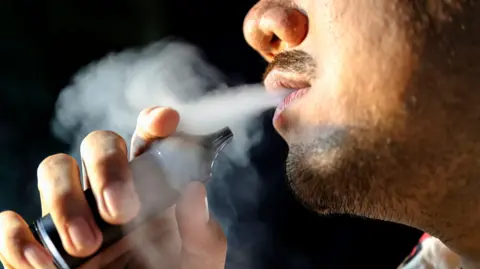Ong Beng Seng, a billionaire hotelier based in Singapore, has taken a significant step in a major corruption case that rocked the nation, entering a guilty plea to charges linked with obstructing justice. His confession relates to his efforts to assist former transportation minister Subramaniam Iswaran in covering up incriminating evidence when the latter was under investigation for corruption, which had garnered national attention last year.
According to court proceedings, Ong provided Iswaran with luxurious gifts, which included an extravagant all-expenses-paid trip featuring a private jet. Under Singaporean law, public officials are prohibited from retaining such gifts unless they disclose their value to the government and pay for them if they are involved in business-related dealings.
As a consequence of his guilty plea, Ong is set to receive sentencing on August 15, initially facing the possibility of two to seven years in prison. However, both the prosecution and his defense have suggested that due to his deteriorating health, a monetary penalty would be more fitting than incarceration. Ong suffers from rare bone marrow cancer, and has been granted permission by the court to travel for medical treatment and work while the case was pending.
During the hearing, prosecutors stated that while Ong played a crucial role in Iswaran's attempt to hide wrongdoing, he was less culpable compared to the former minister, who had been in a ministerial position at the time of the offenses. Ong’s lawyers defended him by arguing that he merely followed the plans devised by Iswaran.
Details emerging from the proceedings revealed that Iswaran had requested Ong to bill him for a business class flight after he learned that he could be implicated in a police investigation linked to Ong's associates. On Monday, Ong admitted to billing Iswaran retroactively for the trip and accepted responsibility for another charge relating to the lavish Doha excursion estimated to be worth approximately S$20,850.
The roots of this scandal lie in Ong's pivotal role in establishing the F1 Grand Prix in Singapore, which has drawn global attention and sparked a flurry of business activity. Ong, who was raised in Singapore after moving there as a child from Malaysia, has a well-established property firm, Hotel Properties Limited, encompassing various luxury hotel brands, including the Four Seasons and Marriott.
This case highlights the challenges faced by Singaporean lawmakers, whose high remuneration packages are purportedly designed to mitigate corruption risks in governance. The scandal emphasizes the tight knit nature of political and business dealings in Singapore, showcasing the potential consequences of unethical conduct in public office.
According to court proceedings, Ong provided Iswaran with luxurious gifts, which included an extravagant all-expenses-paid trip featuring a private jet. Under Singaporean law, public officials are prohibited from retaining such gifts unless they disclose their value to the government and pay for them if they are involved in business-related dealings.
As a consequence of his guilty plea, Ong is set to receive sentencing on August 15, initially facing the possibility of two to seven years in prison. However, both the prosecution and his defense have suggested that due to his deteriorating health, a monetary penalty would be more fitting than incarceration. Ong suffers from rare bone marrow cancer, and has been granted permission by the court to travel for medical treatment and work while the case was pending.
During the hearing, prosecutors stated that while Ong played a crucial role in Iswaran's attempt to hide wrongdoing, he was less culpable compared to the former minister, who had been in a ministerial position at the time of the offenses. Ong’s lawyers defended him by arguing that he merely followed the plans devised by Iswaran.
Details emerging from the proceedings revealed that Iswaran had requested Ong to bill him for a business class flight after he learned that he could be implicated in a police investigation linked to Ong's associates. On Monday, Ong admitted to billing Iswaran retroactively for the trip and accepted responsibility for another charge relating to the lavish Doha excursion estimated to be worth approximately S$20,850.
The roots of this scandal lie in Ong's pivotal role in establishing the F1 Grand Prix in Singapore, which has drawn global attention and sparked a flurry of business activity. Ong, who was raised in Singapore after moving there as a child from Malaysia, has a well-established property firm, Hotel Properties Limited, encompassing various luxury hotel brands, including the Four Seasons and Marriott.
This case highlights the challenges faced by Singaporean lawmakers, whose high remuneration packages are purportedly designed to mitigate corruption risks in governance. The scandal emphasizes the tight knit nature of political and business dealings in Singapore, showcasing the potential consequences of unethical conduct in public office.




















